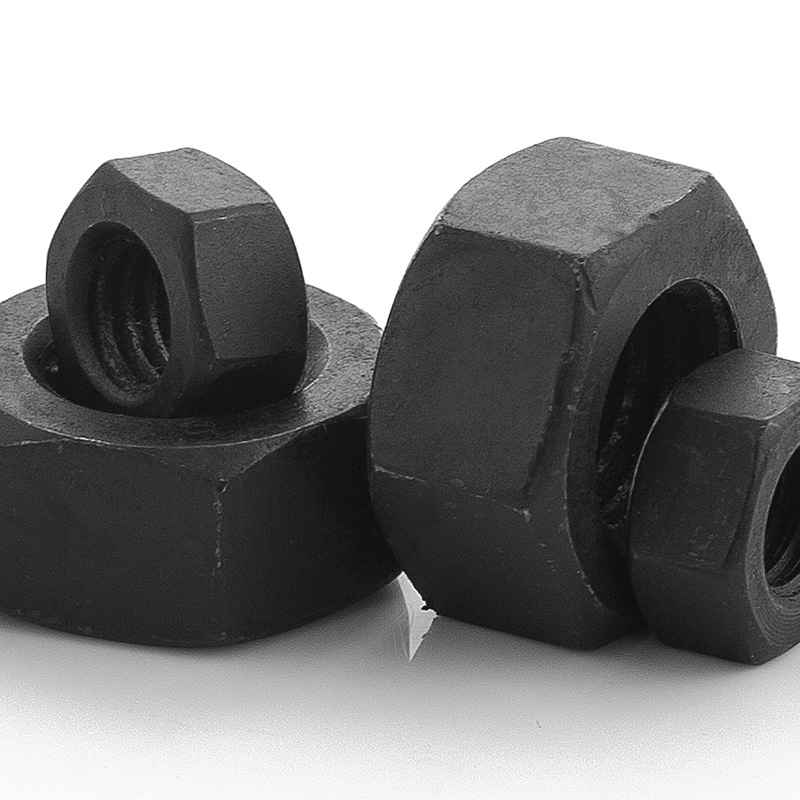

Durable Steel Washers for Enhanced Performance in Mechanical Applications
Дек . 05, 2024 03:54 Back to list
Durable Steel Washers for Enhanced Performance in Mechanical Applications
The Importance of Steel Washers in Modern Engineering
In the world of mechanical engineering and construction, small components often play a significant role in the efficacy and safety of larger systems. One such component is the steel washer. Though often overlooked, steel washers are essential mechanical parts that serve various critical functions in a wide range of applications. In this article, we will explore the significance of steel washers, their types, uses, and the manufacturing processes involved in producing high-quality steel washers.
What is a Steel Washer?
A steel washer is a flat, disc-shaped component with a central hole, typically made from steel or other metal materials. It is used primarily to distribute the load of a threaded fastener, such as a bolt or nut, thereby preventing damage to the surface being fastened. Washers also assist in reducing friction, providing insulation, and preventing leakage in certain applications. They are a crucial element in ensuring the longevity and effectiveness of machines, structures, and other mechanical assemblies.
Types of Steel Washers
Steel washers come in various shapes and sizes, each designed for specific applications. The most common types include
1. Flat Washers These are the simplest type of washers, providing a flat surface for load distribution. They come in various diameters and thicknesses, making them versatile for different applications.
2. Lock Washers Designed to prevent loosening, lock washers come in several forms, including split, toothed, and internal/external tooth designs. They are used where vibration might cause other kinds of fasteners to become loose.
3. Spring Washers These washers have a curved shape and are used to maintain tension in a fastened joint. They can absorb shock and vibration, making them ideal for dynamic applications.
4. Fender Washers With a larger outer diameter than standard flat washers, fender washers are used to distribute load over a larger surface area. They are often employed in applications where the material being fastened is soft or fragile.
Uses of Steel Washers
Steel washers are found in numerous industries, including automotive, aerospace, construction, and manufacturing. They serve various purposes, such as
steel washers

- Load Distribution By evenly distributing the load of fasteners, steel washers prevent damage to surfaces and enhance the durability of connections. - Vibration Resistance Lock washers help maintain tight connections in environments prone to vibration, reducing the risk of mechanical failure.
- Sealing Applications Sealing washers are crucial in preventing leakages in pipes, hydraulic systems, and fuel lines, ensuring operational efficiency and safety.
- Electrical Insulation Some washers are designed to provide insulation in electrical applications, helping to prevent short circuits and electrical failures.
Manufacturing Processes
The manufacturing of steel washers typically involves several key processes, including
1. Material Selection High-quality steel is chosen based on the washer's intended application. Stainless steel, carbon steel, and alloy steel are common choices due to their strength and durability.
2. Blanking This process involves cutting the flat washer shape from a sheet of steel using a die and press.
3. Heat Treatment To enhance the mechanical properties of the washers, heat treatment processes may be applied, improving strength and resistance to wear.
4. Finishing Washers are often coated with materials such as zinc or other finishes to prevent corrosion and enhance aesthetics.
5. Quality Control Finally, rigorous quality control measures are taken to ensure that the washers meet industry standards and specifications.
Conclusion
In conclusion, steel washers may be small, but they are critical components in countless applications across various industries. Their ability to distribute loads, prevent vibrations, provide sealing, and enhance safety makes them indispensable in modern engineering. Understanding the different types of steel washers and their applications can help engineers and designers make informed decisions, ensuring the efficiency and longevity of their mechanical systems. Whether in a high-performance automotive setup or a simple household fixture, steel washers are indeed a vital part of our everyday lives.
Latest news
-
Premium Self Tapping Metal Screws: Strong & Easy Install
NewsAug.02,2025
-
Premium Fasteners Manufacturer | AI-Driven Solutions
NewsAug.01,2025
-
Hot Dip Galvanized Bolts - Hebei Longze | High Strength, Corrosion Resistance
NewsAug.01,2025
-
High-Strength Hot Dip Galvanized Bolts - LongZe | Corrosion Resistance, Custom Sizes
NewsAug.01,2025
-
Best Self Tapping Screws for Drywall - Fast & Secure Installation
NewsJul.31,2025
-
High-Strength Hot Dip Galvanized Bolts-Hebei Longze|Corrosion Resistance&Customization
NewsJul.31,2025

